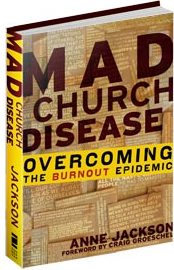
OK, so it’s not an overwhelming majority but it is a majority, which is certainly not what some people want us to believe.
The Los Angeles Times is telling us that while the science community is less likely than the general public to believe in God or a higher power, there is still just over half their number who think there’s more to life than that which can be verified scientifically. Surveys of the general public show a 95% belief in God or higher power.
According to a survey of members of the American Assn. for the Advancement of Science, conducted by the Pew Research Center in May and June this year, a majority of scientists (51%) say they believe in God or a higher power, while 41% say they do not.
You might think that most of those admitting to a belief in God or a higher power would be leaning towards the higher power end of the spectrum when in fact 42% of scientists say that they believe in a personal God.
The research doesn’t show that those who believe in God necessarily believe that he created the world in which we live.
Today, a century and a half after Charles Darwin published “On the Origin of Species by Means of Natural Selection,” the overwhelming majority of scientists in the United States accept Darwinian evolution as the basis for understanding how life on Earth developed. But although evolutionary theory is often portrayed as antithetical to religion, it has not destroyed the religious faith of the scientific community.
But what would Darwin have said if he was surveyed on his beliefs? Charles Darwin’s original choice of career was to be a village vicar but it’s said that he lost his faith because it didn’t fit with his thoughts on evolution.
As for Darwin, his letters indicate that he was probably an agnostic who lost his faith not because his groundbreaking theory was incompatible with religion, but because of his grief after the 1851 death of his favorite child, his 10-year-old daughter, Annie. And even then, he may not have completely rejected the idea of a higher power. The concluding sentence of “Origin of Species” speaks of a “Creator” breathing life “into a few forms or into one.” The passage raises at least a little doubt as to how the father of modern evolutionary theory might have responded to the question on belief in Pew’s recent survey of scientists.
What do you think? How would you respond to the question? Is there a God or higher power watching over us? Did that God or higher power create this world or even set the process in motion? I’d love to get your thoughts in the comments section below.
Discovered via Phil Cooke.
Do you think some of your friends would enjoy reading Majority of Scientists Believe in a Higher Power? Please use the buttons below to share the post. Thanks.

 Australia’s first ever national research findings on chaplaincy in Australian government schools have just been released and the results are very positive.
Australia’s first ever national research findings on chaplaincy in Australian government schools have just been released and the results are very positive. John Piper seems to be beating himself up about an answer he gave at Advance ’09. While I don’t see the problem, I’m glad he decided to explain his position more clearly.
John Piper seems to be beating himself up about an answer he gave at Advance ’09. While I don’t see the problem, I’m glad he decided to explain his position more clearly. Something amazing happened last month. Something that proves that the problem is not too big to be tackled.
Something amazing happened last month. Something that proves that the problem is not too big to be tackled.